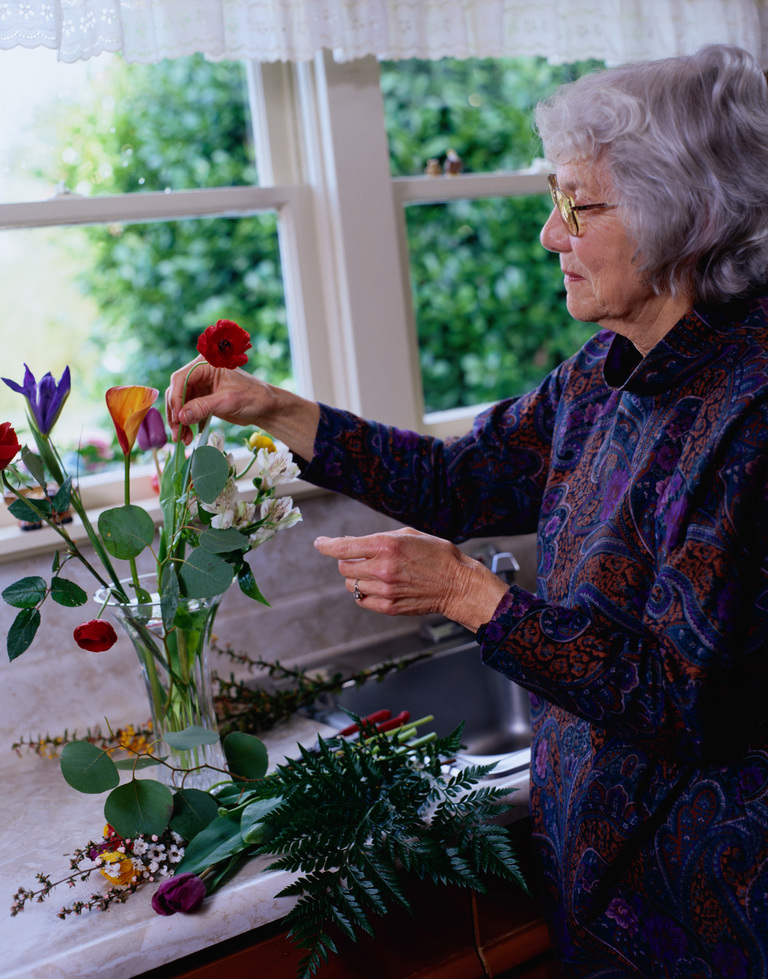AVAILABLE 24 HOURS A DAY, 365 DAYS OF THE YEAR!
405-440-2440



Copyright 2006 AutumnBridge Hospice, L.L.C

Grief Support
• Avoid the use of drugs and alcohol. Medication should be taken sparingly and only under the supervision of your physician. Many substances are addictive and can lead to a chemical dependence. In addition, they may stop or delay the necessary grieving process.
• Friends and relatives may be uncomfortable around you. They want to ease your pain but do not know how. Take the initiative and help them learn how to be supportive. Talk about your loss so they know talking is appropriate.
• Whenever possible, put off major decisions (moving, changing jobs, etc.) for at least one year.
• Avoid making hasty decisions about your loved one’s belongings. Do not allow others to take over or rush you. You can do it little by little whenever you feel ready.
• You may feel that you have nothing to live for and may think about a release from this intense pain. Be assured that many people feel this way but that a sense of purpose and meaning does return. The pain does lessen.
• Guilt, real or imagined, is a normal part of grief. It surfaces in thoughts and feelings of “if only.” To resolve this guilt, learn to express and share these feelings and learn to forgive yourself.
• Holidays, birthdays, and anniversaries of your loved one’s death can be stressful times. Consider the feelings of the entire family in planning how to spend the day. Allow time and space for your own emotional needs.
• Death often causes one to challenge and examine his or her faith or philosophy of life. Don’t be disturbed if you are questioning old beliefs. Talk about it. For many, faith offers help to accept the unacceptable.
• It helps to become involved with a group of others having similar experiences. Sharing eases loneliness and promotes the expression of your grief in an atmosphere of acceptance and understanding.
• Friends and relatives may be uncomfortable around you. They want to ease your pain but do not know how. Take the initiative and help them learn how to be supportive. Talk about your loss so they know talking is appropriate.
• Whenever possible, put off major decisions (moving, changing jobs, etc.) for at least one year.
• Avoid making hasty decisions about your loved one’s belongings. Do not allow others to take over or rush you. You can do it little by little whenever you feel ready.
• You may feel that you have nothing to live for and may think about a release from this intense pain. Be assured that many people feel this way but that a sense of purpose and meaning does return. The pain does lessen.
• Guilt, real or imagined, is a normal part of grief. It surfaces in thoughts and feelings of “if only.” To resolve this guilt, learn to express and share these feelings and learn to forgive yourself.
• Holidays, birthdays, and anniversaries of your loved one’s death can be stressful times. Consider the feelings of the entire family in planning how to spend the day. Allow time and space for your own emotional needs.
• Death often causes one to challenge and examine his or her faith or philosophy of life. Don’t be disturbed if you are questioning old beliefs. Talk about it. For many, faith offers help to accept the unacceptable.
• It helps to become involved with a group of others having similar experiences. Sharing eases loneliness and promotes the expression of your grief in an atmosphere of acceptance and understanding.

Day-To-Day Suggestions
The following list of suggestions may help you cope day-to-day with grief.
• Grief, with it’s many ups and downs, lasts far longer than society generally recognizes. Be patient with yourself.
• Crying is an acceptable and healthy expression of grief and releases built-up tension for everyone. Cry freely as you feel the need.
• Physical reactions to death may include loss of appetite or overeating, sleeplessness, and sexual difficulties. You may find that you have very little energy and cannot concentrate. A balanced diet, rest, and moderate exercise are especially important at this time.
The following list of suggestions may help you cope day-to-day with grief.
• Grief, with it’s many ups and downs, lasts far longer than society generally recognizes. Be patient with yourself.
• Crying is an acceptable and healthy expression of grief and releases built-up tension for everyone. Cry freely as you feel the need.
• Physical reactions to death may include loss of appetite or overeating, sleeplessness, and sexual difficulties. You may find that you have very little energy and cannot concentrate. A balanced diet, rest, and moderate exercise are especially important at this time.